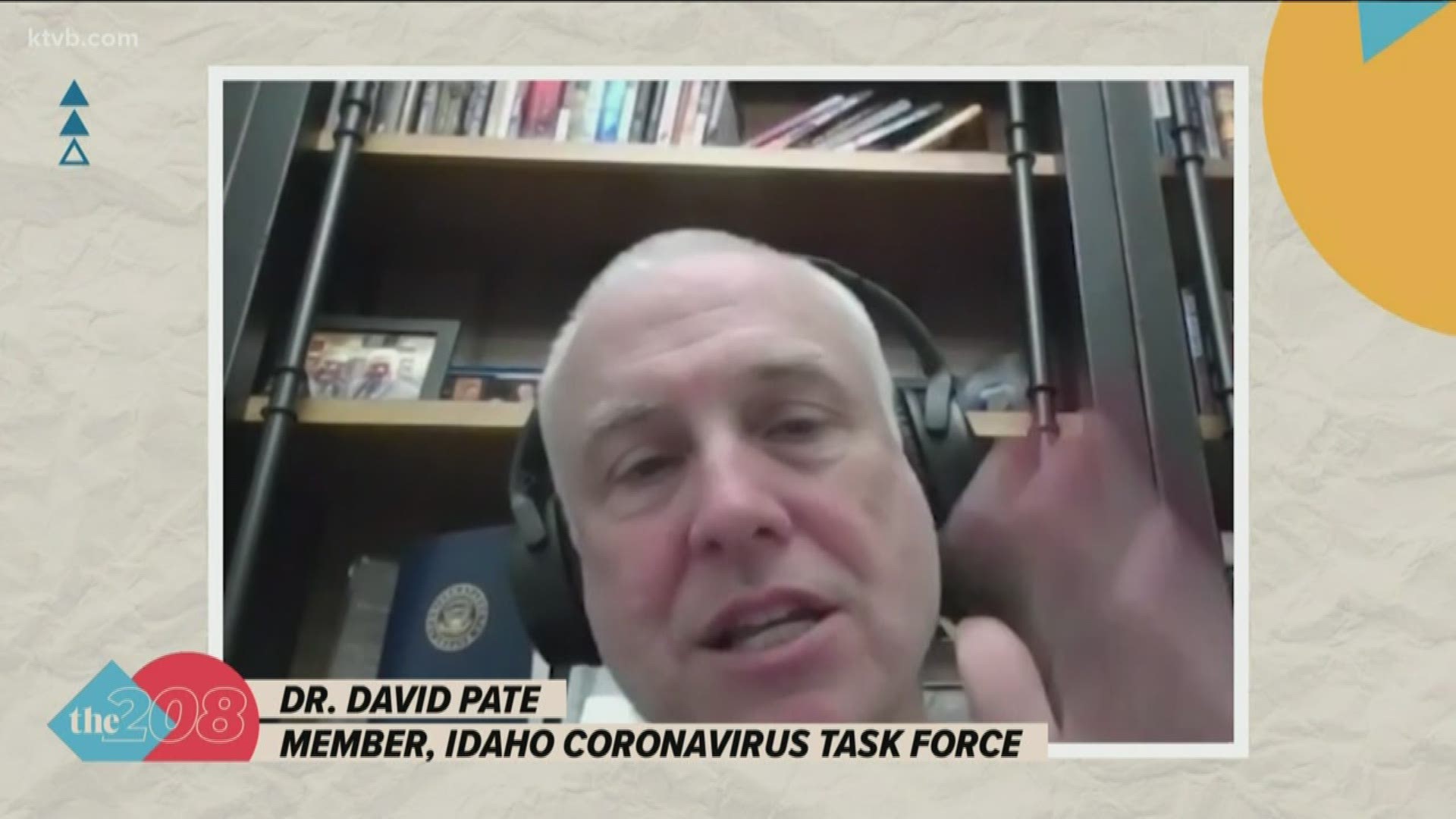BOISE, Idaho — When looking at testing and the increasing number of coronavirus cases, the obvious question is --are we better off now than we were back in March or April?
Dr. David Pate, retired CEO of St. Luke's Health, and a member of the state's coronavirus task force caught our attention with this tweet he posted Tuesday. It read:
"My wife and I are sheltering in place like we did in March/April because I believe things are actually more dangerous now than back then."
What does he mean by that?
He's on the task force. Does he know something we don't? We wanted to find out.
"How so, Dr. Pate? How are things more dangerous?" asked Kim Fields.
"There's lots of reasons to be concerned, but the big reason why I'm more concerned is the fact that what happens when younger people get infected is that a much higher proportion of the them are asymptomatic," Dr. Pate said. "So that means when we see these skyrocketing numbers that we're seeing, which really the number of cases right now is almost double of what we were seeing back in March, April. Think about this, that for every case that we know about, there very may well be many more out there, four to 10 more people out there that are asymptomatic, and they don't know it. So, actually, the risk right now, there's many more people out there that have no idea they're infected that can infect us."
"So, what do we do about this?" asked Kim Fields.
"Well, we've got to get people's attention. We've got to get them to get a healthy level of respect for this virus," Dr. Pate said. “We shouldn't have young people thinking that nothing bad can happen from this because it can. Most of them are going to be fine, but the real risk is that they are going to infect other people who will have a much higher chance of having a problem.”
"So you serve on the state coronavirus task force. What is the task force talking about right now?" asked Kim Fields.
"Lots of different things. Of course, testing has become an issue again. And we're going to see more problems," Dr. Pate said. “We're also starting to see delays in getting test results back because the labs are just being overwhelmed with test samples and so forth. So that's one thing that we're talking about and how do we continue to improve the availability of testing and who should be tested. There's a lot of debate over who needs to be tested."
"But Dr. Pate, why are we still asking these questions three, four months into this? Shouldn't the plans have already been in place when we were sheltering in place and when we were preparing for this potential second wave, why are we still asking these questions now in July?"
"Excellent question. And the answer is yes, we should have been prepared,” Dr. Pate said. “Some of this, we have been preparing for this. Some of this is out of our control. And the part that we have been doing, so for example, we have a testing task force that's come out with criteria and so forth, but that criteria has to evolve as our situation evolves so that constantly has to be reworked."
"It seems that the obvious question is, do we need to pull back? Do we need to go back to Phase 2? Do we need to go back to Phase 1 to put a lid on what seems to be a boiling pot of water? What is the task force saying?" asked Kim Fields.
"That's the right question,” Dr. Pate said. “All of us would think that's kind of a last resort because we know, we did it and it wasn't fun and it put a lot of businesses at risk, some are not recovering. It did put a lot of people out of work. So obviously, that's where we may have to go, we don't want to. I think a much more logical approach is for us to do a few things. First of all, again, if we can just get the message out and help people understand this is serious, please act that way."
"So face masks. We hear so much about that. Are there members of the task force that are encouraging Governor Little to issue a statewide face mask mandate? Why just not go ahead and do that?" asked Kim Fields.
"Well, certainly that has happened, but I think you know that the governor is dealing with the practicality of not all areas of Idaho are the same," Dr. Pate said. “So I think the governor's preference, and I think rightly so is, let's address this by region. But we need mayors to step up. We need public health districts to step up. We need county commissioners to step up. The answer medically is quite clear. It's quite clear. It's the question of do these leaders have the will, because they will get a lot of criticism."
We also asked Dr. Pate about schools.
He thinks schools they will open in the fall, but the big question that still needs answering -- how do we do it safely?
Facts not fear: More on coronavirus
See our latest updates in our YouTube playlist:

